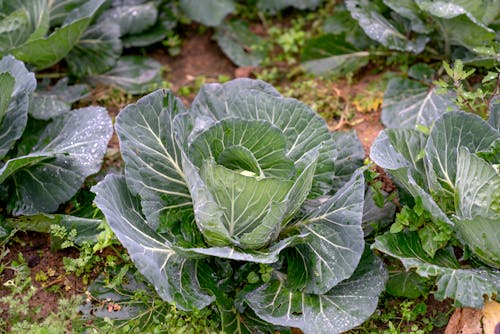This post contains affiliate links, meaning that I may receive compensation if you make a purchase through these links. As an Amazon Associate, I earn from qualifying purchases. This compensation does not influence the content, or recommendations provided. The opinions expressed are my own, and I strive to provide honest and unbiased information.
Vitamin Ks critical role. Vitamin K is an often overlooked nutrient essential for many bodily functions, particularly in blood clotting and bone health. While many are familiar with vitamins like A, C, and D, Vitamin K often remains in the shadows despite its importance. In this comprehensive guide, we will explore what Vitamin K is, its functions in the human body, the consequences of a deficiency, natural food sources, supplements, and how it interacts with other nutrients.
What is Vitamin K?
Vitamin K is a fat-soluble vitamin, meaning it is stored in the body’s fatty tissues and liver. It comes in two primary forms: Vitamin K1 (phylloquinone) and Vitamin K2 (menaquinone). Vitamin K1 is predominantly found in plant-based foods like leafy greens, while Vitamin K2 is present in animal products and fermented foods. Both forms are essential for maintaining optimal health.
Vitamin K1 (Phylloquinone)
Vitamin K1 is primarily involved in blood clotting (coagulation). It helps in the synthesis of proteins required for the coagulation cascade, a series of steps that lead to the formation of a blood clot. Without adequate Vitamin K1, the blood clotting process would be severely impaired, leading to excessive bleeding from injuries.
Vitamin K2 (Menaquinone)
Vitamin K2, on the other hand, plays a vital role in bone health. It activates proteins that regulate calcium deposition in bones and teeth and prevents the calcification of blood vessels and other soft tissues. Vitamin K2 is crucial for ensuring that calcium is directed to the bones where it is needed and not deposited in the arteries, where it can cause harm.
What are the Functions of Vitamin K in Humans?

Vitamin K has several critical functions in the human body, including:
- Blood Clotting: Vitamin K is essential for synthesizing clotting factors, including prothrombin, which is necessary for blood coagulation. This process prevents excessive bleeding when injuries occur.
- Bone Health: Vitamin K2 activates osteocalcin, a protein that binds calcium to the bone matrix, thus strengthening bones and reducing the risk of fractures. It also helps prevent osteoporosis.
- Cardiovascular Health: By preventing the calcification of arteries, Vitamin K2 helps maintain cardiovascular health and reduces the risk of heart disease.
- Cell Growth and Development: Vitamin K is involved in regulating cell growth and maintaining healthy cell functions, contributing to overall well-being.
Known Consequences of Vitamin K Deficiency
A deficiency in Vitamin K can lead to several health issues, some of which can be severe. The most notable consequences include:
- Bleeding Disorders: A lack of Vitamin K impairs the blood clotting process, leading to easy bruising, nosebleeds, and excessive bleeding from wounds or surgical sites. In severe cases, it can cause internal bleeding, which is life-threatening.
- Osteoporosis and Bone Fractures: Without sufficient Vitamin K2, calcium is not adequately integrated into the bone structure, weakening bones and increasing the risk of fractures. This is particularly concerning for postmenopausal women and the elderly.
- Calcification of Arteries: Deficiency in Vitamin K2 can lead to the calcification of blood vessels, increasing the risk of cardiovascular diseases such as atherosclerosis, heart attacks, and strokes.
What are some Natural Sources of Vitamin K?
To maintain adequate levels of Vitamin K, it is essential to consume a diet rich in foods that provide this nutrient. Here are some of the best natural sources:
Vitamin K1 (Phylloquinone) Sources

- Leafy Green Vegetables: Kale, spinach, collard greens, and Swiss chard are among the richest sources of Vitamin K1.
- Cruciferous Vegetables: Broccoli, Brussels sprouts, and cabbage also provide significant amounts of Vitamin K1.
- Herbs: Parsley, cilantro, and basil are excellent sources and can be easily added to various dishes.
Vitamin K2 (Menaquinone) Sources
- Fermented Foods: Natto (fermented soybeans) is particularly high in Vitamin K2. (Try finding it at your local Asian grocery store or online Asian grocery store.) Other fermented foods like sauerkraut and kimchi also contain Vitamin K2, though in smaller amounts. Sauerkraut and Kimchi are more readily available and familiar to Western shoppers. Try experimenting with different brands and different levels of spice and heat.
- Animal Products: Meat, particularly liver, and egg yolks are good sources of Vitamin K2.
- Dairy Products: Cheese, especially aged varieties, and butter from grass-fed cows are rich in Vitamin K2.
Alternatives for Those Not Inclined to Eat a Healthy Diet (Smile)
For individuals who may not consume enough Vitamin K through their diet, supplements, multi-vitamin-based drink mixes and drops are viable alternatives.
Vitamin K Supplements
Vitamin K supplements are available in various forms, including:
Multivitamins: Many multivitamin formulations include Vitamin K1 and/or K2. My multivitamin of choice is NaturesPlus Source of Life Original or Gold.
Supplements: Vitamin K2 supplements (often in the form of MK-4 or MK-7) are available for those specifically looking to boost their intake of this form. I highly recommend Bronson Vitamin K Triple Play Full Spectrum Complex Vitamin K.
Vitamin K Drops
Some people prefer the convenience of vitamin-based drops. These products can be a good option for ensuring adequate intake of essential vitamins, including Vitamin K. It’s important to check the label to ensure it contains a significant amount of Vitamin K1 or K2. Two options: Biotics Research Bio K Mulsion and CYMBIOTIKA Vitamin D3+K2+CoQ10.
Enhancing Vitamin K Absorption and Function
Vitamin K works synergistically with other vitamins and minerals, enhancing its absorption and effectiveness. Here are some key nutrients and food combinations that can boost the benefits of Vitamin K:
1. Vitamin D
Vitamin D and Vitamin K2 work together to support bone health. Vitamin D helps with calcium absorption from the digestive tract. Vitamin K2 ensures that the absorbed calcium is deposited in the bones, rather than in the arteries. Taking a supplement that combines Vitamin D and K2 can be beneficial. Avoid poorly manufactured supplements that try to entice you with a low price. Sometimes, you get exactly what you paid for. Bronson Vitamin K2 with D3.
2. Healthy Fats
Since Vitamin K is fat-soluble, consuming it with healthy fats improves its absorption. Adding a healthy fat, such as olive oil, avocado, or nuts, to meals rich in Vitamin K, can enhance its bioavailability.
3. Magnesium
Magnesium plays a role in activating Vitamin D, which in turn supports the function of Vitamin K2. Foods rich in magnesium, such as nuts, seeds, and whole grains, can complement a diet high in Vitamin D. Try Qunol Extra Strength Magnesium 420mg capsules.
4. Probiotics
Probiotics, found in fermented foods and supplements, can improve gut health and enhance the absorption of fat-soluble vitamins, including Vitamin K. Incorporating probiotic-rich foods like yogurt, kefir, and fermented vegetables can support Vitamin K absorption.
Conclusion
Vitamin K, often overshadowed by its more well-known counterparts, plays an indispensable role in maintaining optimal health. Its contributions to blood clotting, bone health, and cardiovascular health make it a nutrient that should not be overlooked.
Ensuring adequate intake through a balanced diet rich in leafy greens, fermented foods, and animal products is essential. For those who struggle with dietary intake, supplements and vitamin-based drink mixes provide viable alternatives.
Understanding how Vitamin K interacts with other nutrients can help maximize its benefits. Knowledge is power.
For a quick education on vitamin K, watch Why Vitamin K is Essential to Your Health. You may also like ‘Avoid Vitamin D Deficiency‘.


